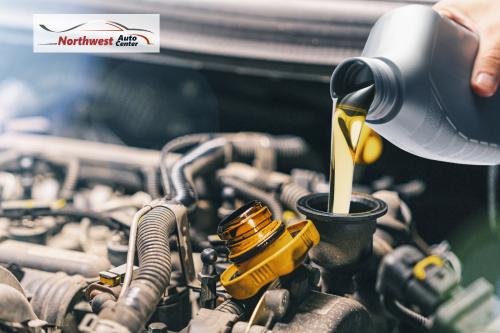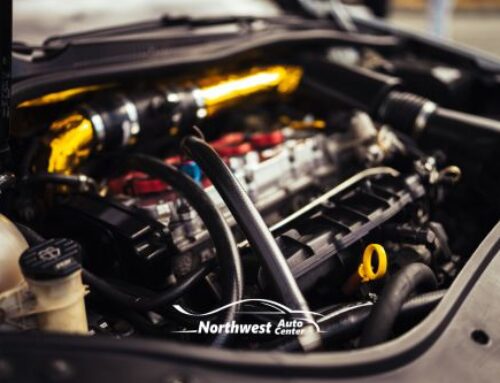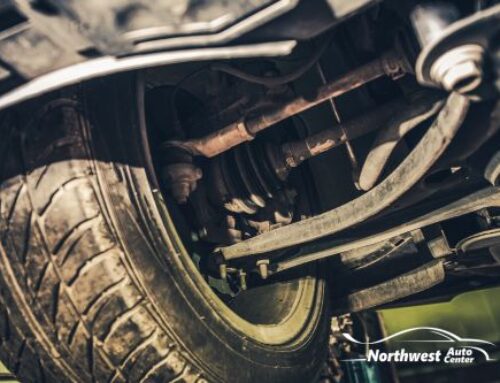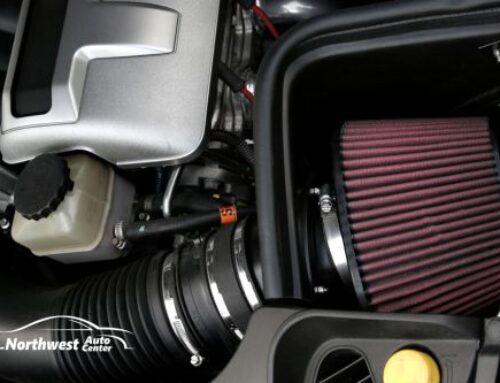Car engine oil is ESSENTIAL for driving your vehicle.
Often hailed as the lifeblood of a vehicle, engine oil plays a pivotal role in ensuring smooth operation, longevity, and performance. However, the sheer variety of car engine oils available on the market can bewilder even the most seasoned drivers. To demystify this essential automotive fluid, let’s embark let’s break down the various engine oil types and oil grades.
Understanding Car Engine Oil
Engine oil lubricates the various moving parts within the engine, reducing friction and heat generation. Moreover, it serves as a cleaning agent, removing contaminants and debris, and helps in maintaining engine cleanliness. If that isn’t enough, oil also aids in sealing gaps between components, preventing leakage and ensuring efficient performance.
All that to say — it’s important.
Types of Car Engine Oil
Car engine oils come in different formulations, tailored to meet the diverse needs of modern vehicles. Here are some common types:
Conventional Oil
Also known as mineral oil, conventional oil is derived from crude oil through a refining process. It offers basic lubrication and is suitable for older vehicles or those with low-mileage engines. However, its performance may be limited compared to synthetic counterparts.
Synthetic Oil
Synthetic oils are manufactured through chemical processes, resulting in a more uniform molecular structure. This imparts superior lubrication properties, increased thermal stability, and enhanced resistance to oxidation and degradation. Synthetic oils are used in most new vehicles.
Synthetic Blend Oil
As the name suggests, synthetic blend oil combines synthetic and conventional base oils. This hybrid formulation offers a balance between performance and affordability, making it a popular choice among drivers seeking enhanced protection without breaking the bank.
High-Mileage Oil
Designed specifically for vehicles with significant mileage, high-mileage oil contains additives that condition seals and gaskets, reducing oil leaks and combating engine wear. It provides extra protection for aging engines, helping to extend their operational lifespan.
Diesel Engine Oil
Diesel engines operate under unique conditions, requiring specialized oils to cater to their specific demands. Diesel engine oils are formulated to withstand higher compression ratios, increased soot levels, and extended drain intervals commonly associated with diesel-powered vehicles.
Your vehicle’s manual will include which oil type is best for your vehicle. Your local mechanic will also have this knowledge should there be any questions.

Engine Oil Grades
Engine oils are classified based on their viscosity, which refers to their flow characteristics at different temperatures. The Society of Automotive Engineers (SAE) established a viscosity grading system, denoted by a combination of numbers, to categorize oils.
Single-Grade Oil
Single-grade oils, such as SAE 30 or SAE 40, maintain a consistent viscosity throughout their operating temperature range. They are typically used in older vehicles or specific applications where temperature variations are minimal.
Multi-Grade Oil
Multi-grade oils, like SAE 5W-30 or SAE 10W-40, offer versatility by providing different viscosity levels depending on temperature. The “W” stands for “winter” viscosity, indicating the oil’s flow properties in cold conditions, while the second number represents its viscosity at operating temperature.
Choosing the right engine oil grade is crucial for optimal engine performance and longevity. Consult your vehicle manufacturer’s recommendations to determine the appropriate viscosity grade for your car.
Keeping Your Vehicle on the Road with the Correct Engine Oil
In the intricate tapestry of car maintenance, understanding engine oils is paramount. By familiarizing yourself with the various types and grades of car engine oils, you can make informed decisions that enhance your vehicle’s performance and longevity. Whether it’s selecting the ideal formulation or choosing the right viscosity grade, knowing your car’s oil type is critical.
Have questions, in need of a repair or need an oil change? Call Northwest Auto Center of Houston today at (281) 894-8880.






Leave A Comment
You must be logged in to post a comment.